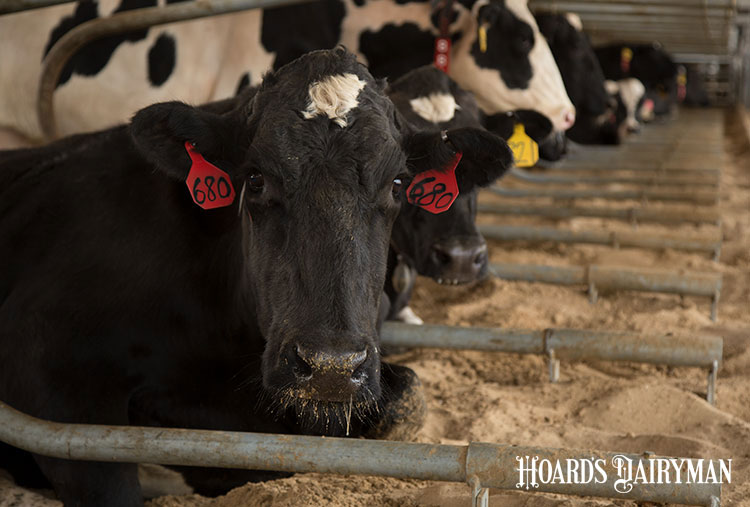
Lying time is one of the most essential activities of a dairy cow’s day and directly impacts health, welfare, and production.
That’s why researchers at the University of Tennessee, University of Kentucky, and The Ohio State University recently analyzed cow behavior, production, and health of cows in both extreme lying and sleep deprivation scenarios.
Cows were prevented from lying down for 24 consecutive hours. Similarly, cows experiencing sleep deprivation were kept alert and awake for 24 hours. Cows in the latter group were, however, permitted to lie down.
In her recent presentation at the ADSA annual meeting in Pittsburgh, Pa., a master’s student from the University of Tennessee, Jessie Kull, shared the lying-deprived group experienced milk yield depression on the day following deprivation by 5 pounds of milk. However, there was no affect on milk production for sleep-deprived cows.
The researchers concluded that the lack of access to resting resources, rather than the relative comfort of those resources once accessed, likely had a greater long-term effect on the welfare of dairy cows.
Kull explained during her June presentation that cows on the lying deprivation trial spent more time the day after deprivation lying down compared to those that were just experiencing sleep deprivation.
Lying-deprived cows spent 16.8 hours the following day lying while those that had been sleep deprived spent 13.6 hours resting. As a group, it took lying-deprived cows more days to recover their lying time than sleep-deprived cows.
Quality and quantity of sleep are both important to the cow, but perhaps more important is quantity of rest. That follows with much of the earlier research, which emphasizes time budget attention to providing adequate lying time and limiting time spent outside the pen.
To comment, email your remarks to intel@hoards.com.
(c) Hoard's Dairyman Intel 2017
July 24, 2017








